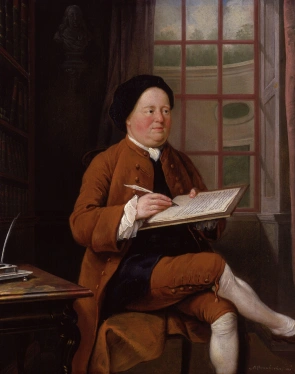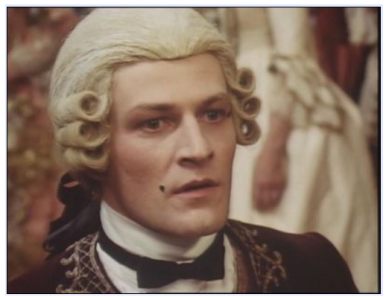Where did we get the idea that all people, not just those most like ourselves, should have basic, fundamental, “self-evident” rights? The historian Lynn Hunt has a theory – she credits the novelist Samuel Richardson.

In her book, Inventing Human Rights: A History, Hunt describes how Richardson’s first novel, Pamela, published in 1740, became a major cultural event. Women and men alike found themselves totally enthralled by the story – one village even rang its church bells upon hearing a rumor of a happy ending. A few years later, Richardson’s second novel, Clarissa, was published, and the two books inspired a third, Jean-Jacques Rousseau’s Julie, published in 1761. (Yes, that Rousseau, the one who wrote The Social Contract and became a major political philosopher.)
In each of these books, a young woman is pursued by a man who very much wants to seduce her, with no intention of marriage, and of course, in that era, her life would be ruined thereafter. Pamela is fortunate – although the man pursues her, tricks her, abducts her, and molests her, eventually (after she realizes she’s in love with him, and after he finds and reads her letters) he changes his mind and marries her.
Clarissa’s story, conversely, is tragic. She only wants to be left alone, but the rich and powerful Robert Lovelace insists he wants to marry her and eventually drugs and rapes her. She still resists him (and on, and on – at 1534 pages, it’s one of the longest novels in the English language). Eventually Clarissa starves herself until she falls ill and dies.
Here’s Sean Bean as Lovelace in the BBC dramatization:

I watched a bit of it years ago. He was creepy, and I’d want to avoid him too!
What was special about these books, and what’s the link to human rights?
I’ve read Pamela. Frankly, it was something of a slog – our standards for a good read are very different now. But back then, it was a sensation. Previously, and even now, most fiction is written from the point of view of an author, or an omniscient narrator, who tells us what’s happening without getting involved in the story directly. Pamela, Clarissa, and Julie, however, were epistolary novels, written in the form of letters by the main character and sometimes other characters. This writing style gives the readers much more immediate access to the inner lives of these women – for many readers, the letters felt real. Readers were led to experience the characters’ lives day by day, one small incident at a time, and all of their emotions. They now knew what it was like to be in these situations. And they cared, very much, what happened to these young women.
Quoting Hunt, now (p.39): “Novels made the point that all people are fundamentally similar because of their inner feelings, and many novels showcased in particular the desire for autonomy. In this way, reading novels created a sense of equality and empathy through passionate involvement in the narrative. Can it be coincidental that the three greatest novels of identification of the eighteenth century – Richardson’s Pamela (1740) and Clarissa (1747-48) and Rousseau’s Julie (1761) – were all published in the period that immediately preceded the appearance of the concept of “the rights of man”?”
I don’t know if I’m totally convinced. After all, if innocent young women were fully people too, maybe it wouldn’t have taken 200 years to start treating them as such. In the United States, a married woman couldn’t get a credit card in her own name until 1974.
But as an exercise in extending empathy to people we didn’t already know, and who probably weren’t very much like ourselves, these novels were quite successful. They could have been among the many stepping stones on the path toward what we now call “moral universalism,” the conviction that our ethical systems should treat everyone fairly.
(Thanks to Robin Turner for the tip – he’d told me there was a book linking the rise of the novel to Enlightenment values, and Hunt’s book is the one I found when I went looking. Robin is one of the most interesting people I know; his blog is here.)

Glad you found the book!